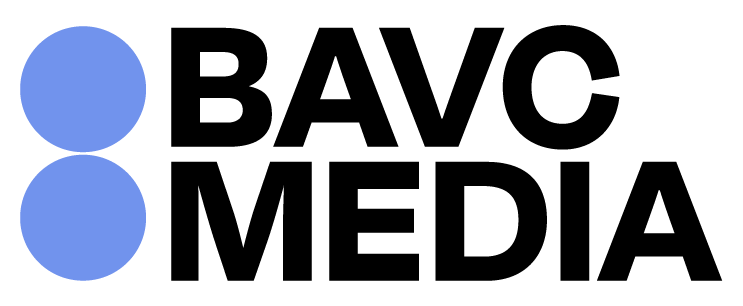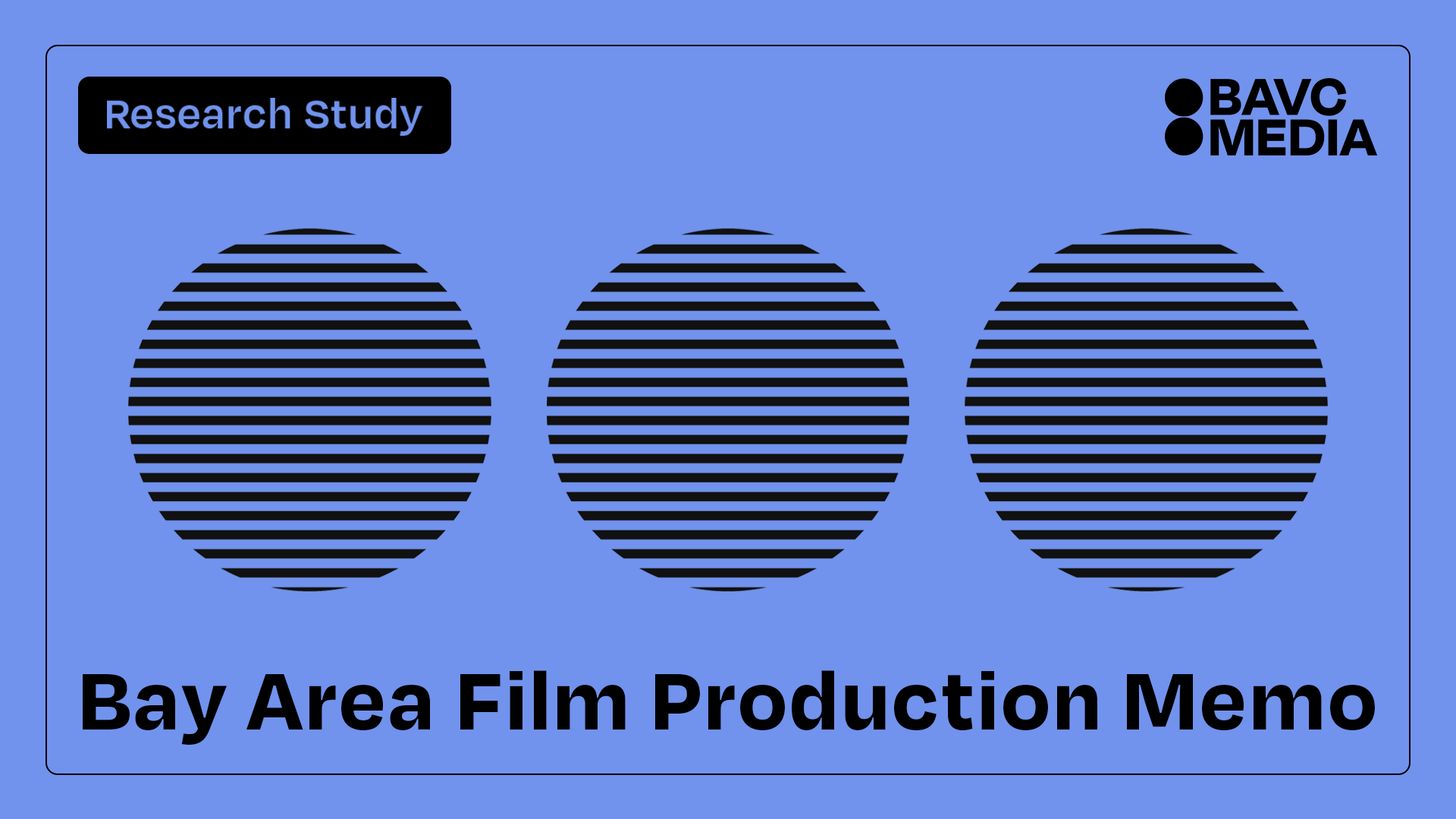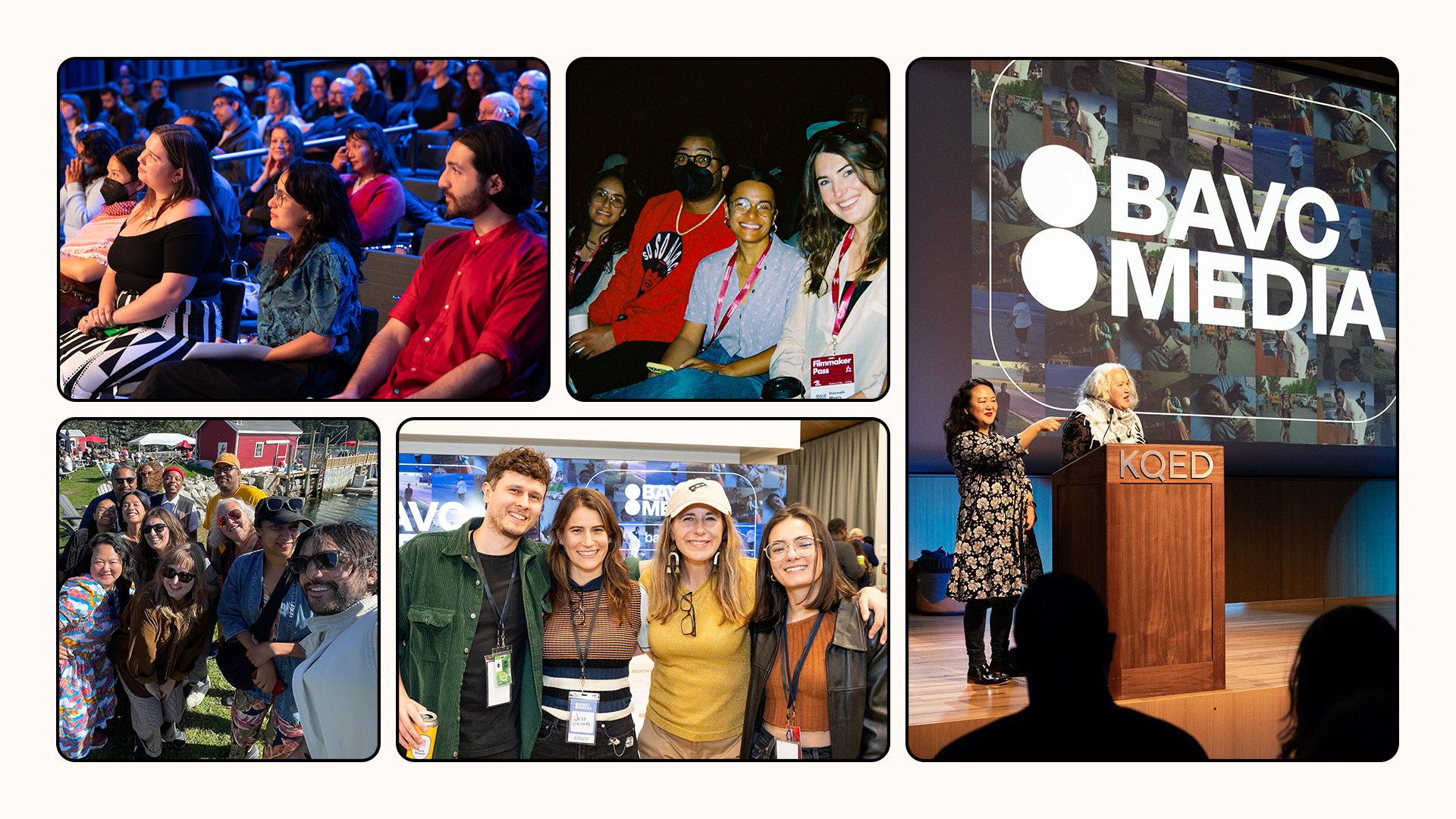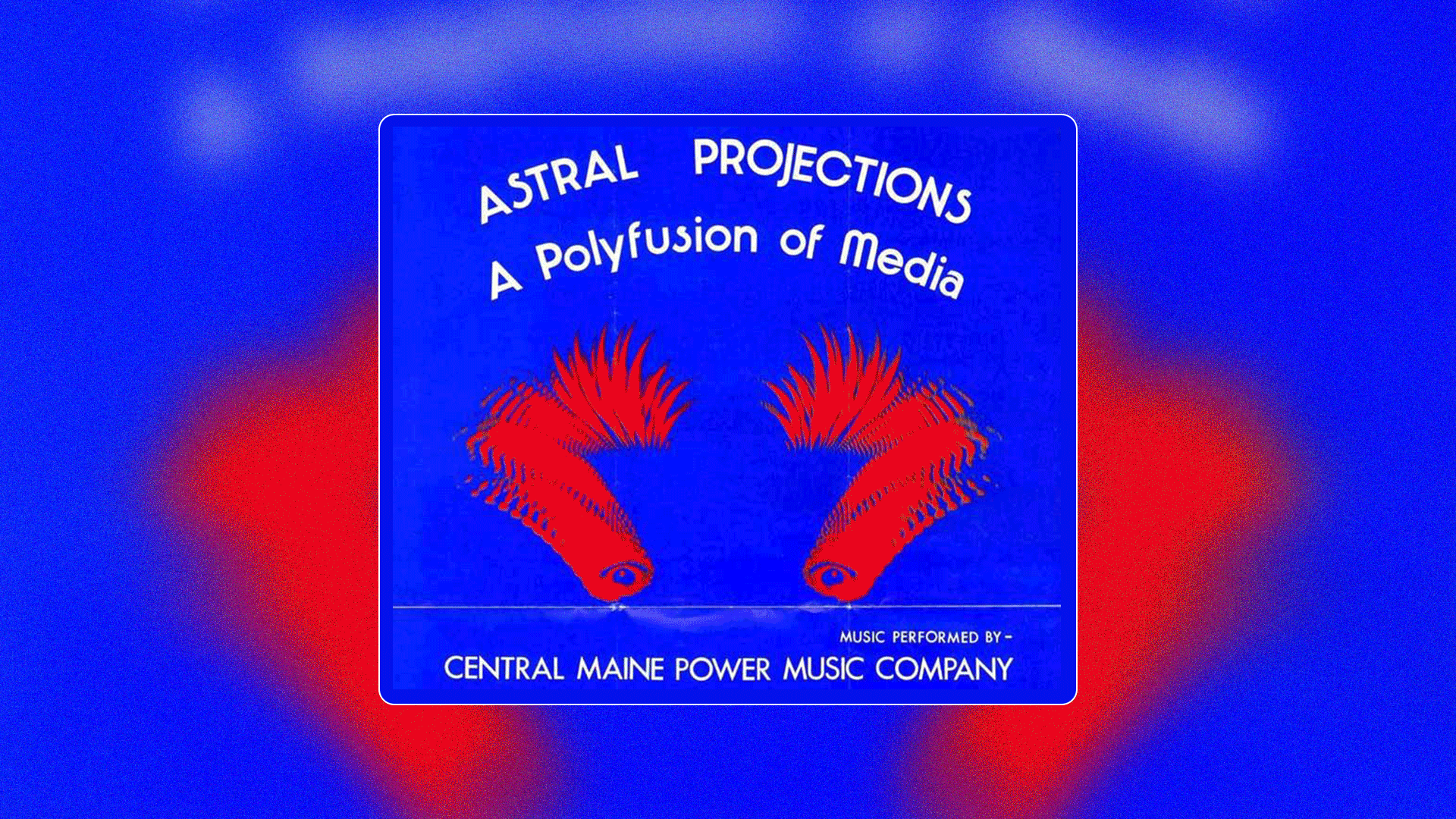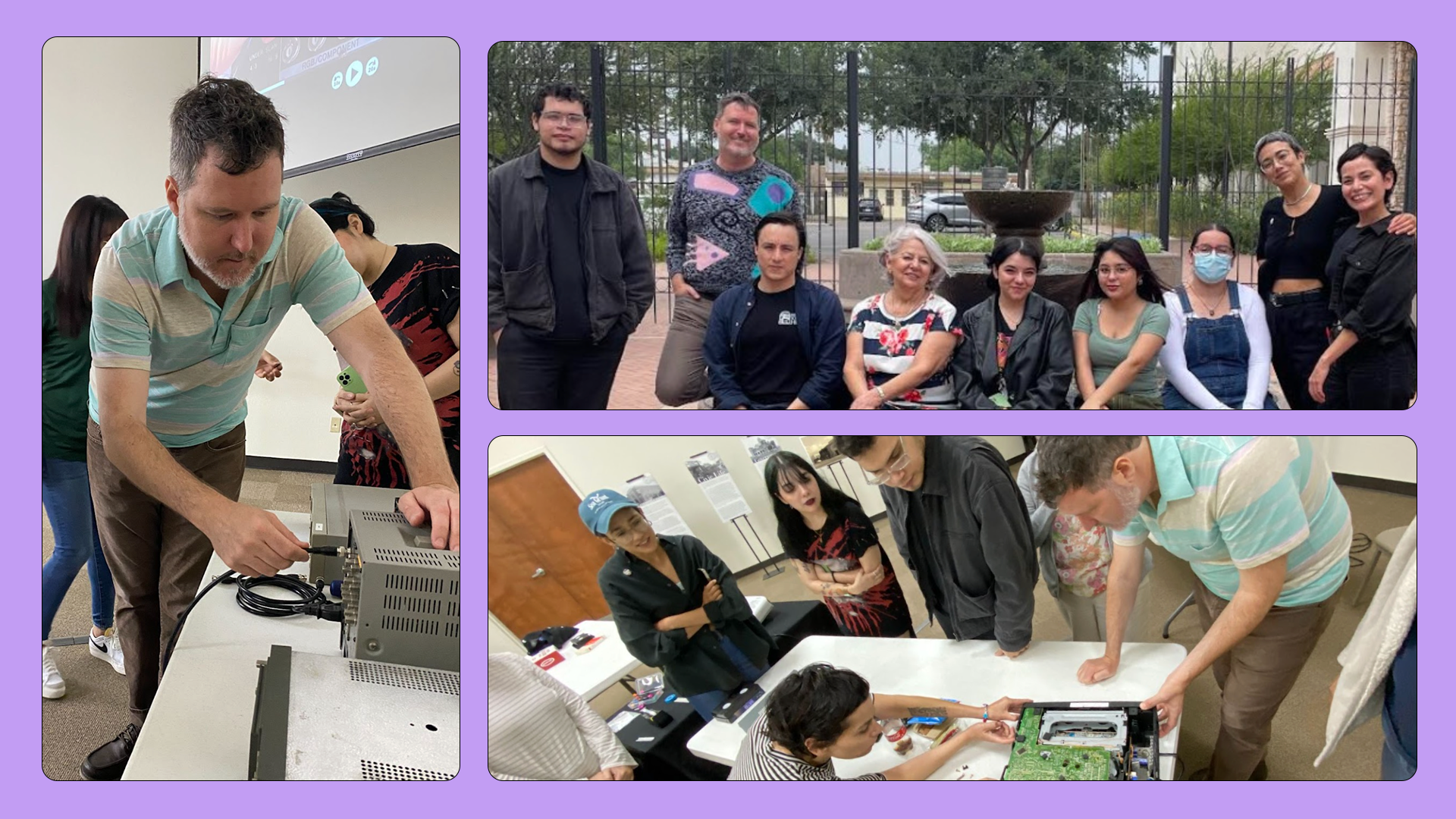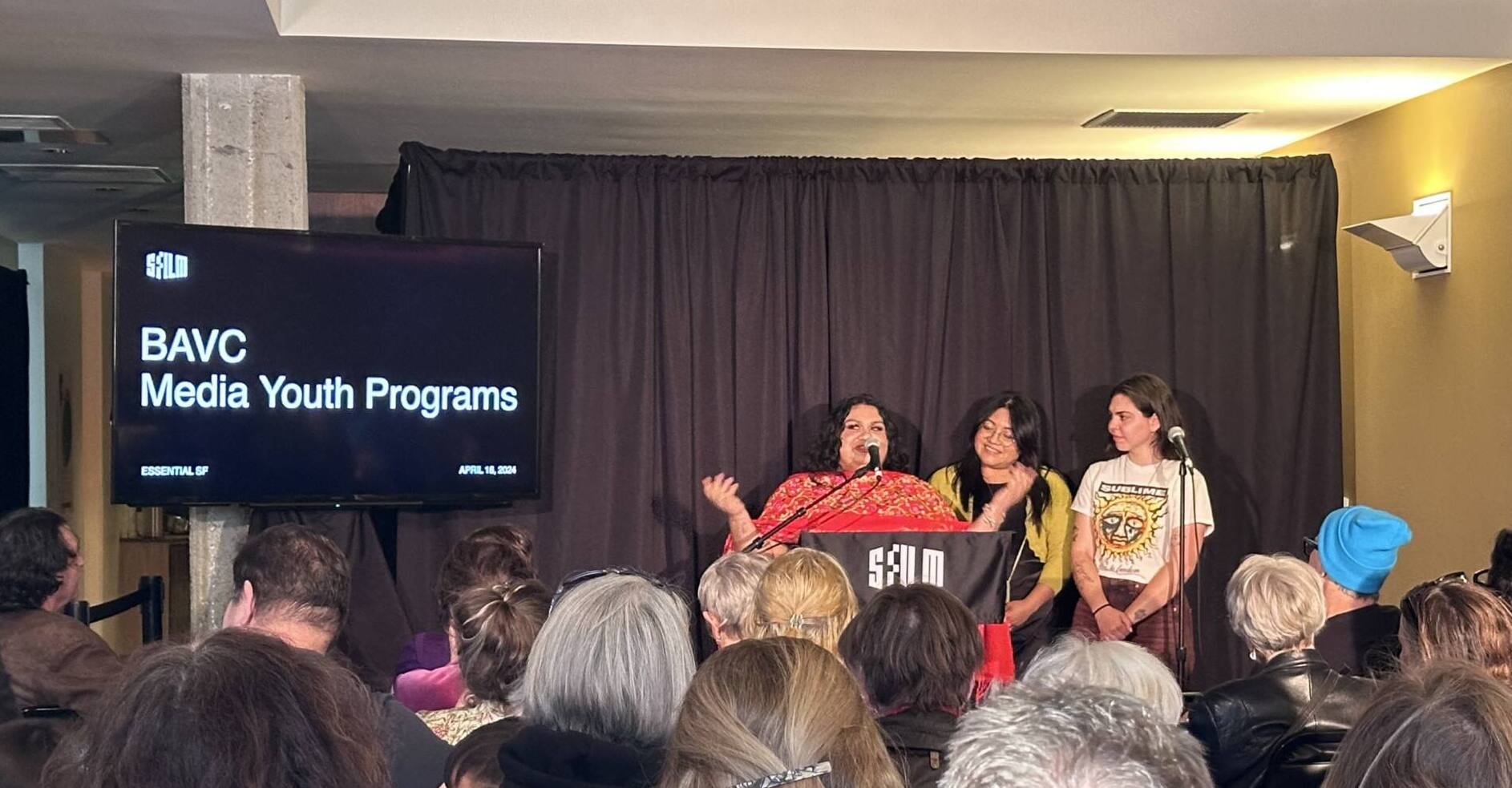PROVISIONS: Demystifying Film Festival Programming with Celeste Wong
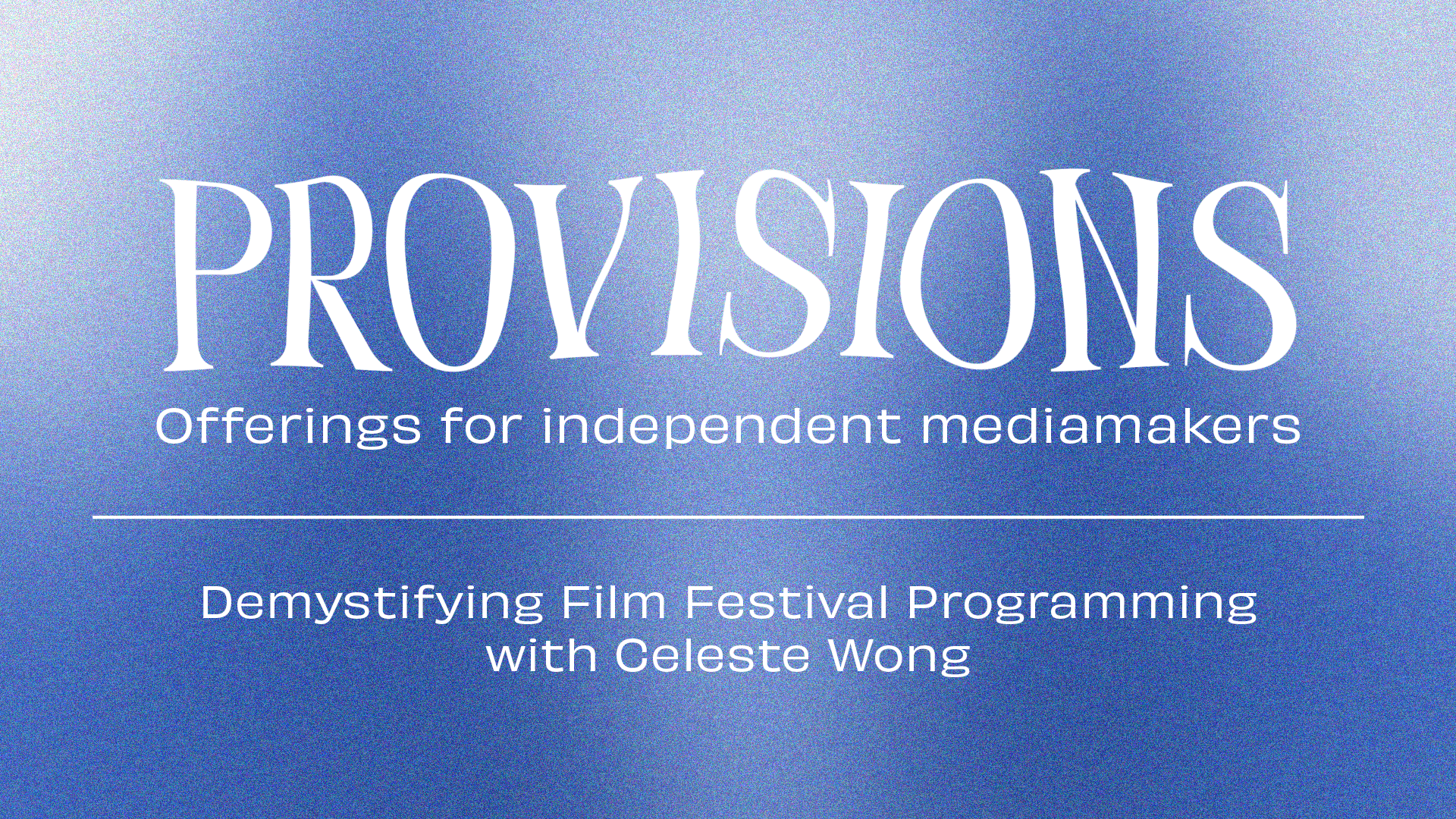
PROVISIONS is a new series from BAVC Media, featuring interviews, advice, and insights into the creative process from our mediamaking community.
Submitting your film to a film festival is exciting and a great way to connect your work with audiences, but it can also be incredibly overwhelming. To help demystify what you should consider throughout the process, we reached out to Celeste Wong, a freelance film festival programmer, or according to her, “a professional film fan,” who currently the US Indies programmer for Mill Valley Film Festival and has worked with the Tribeca Film Festival, the Atlanta Film Festival, as well as the Chicago International Film Festival.
She offered us some practical advice (maybe your Director’s statement shouldn’t be as long as you think) as well as what happens behind-the-scenes when programming for film festivals
“I just have the utmost respect for filmmakers and I’m so impressed by what they do especially with limited resources and endless creativity. So my hope is really just that the relationship is as collaborative as possible and that we can keep the love of film alive together.”
This conversation has been edited for length and clarity.
 When you’re watching films do you have a set of criteria in the back of your mind that you’re thinking about? Does that change from festival to festival?
When you’re watching films do you have a set of criteria in the back of your mind that you’re thinking about? Does that change from festival to festival?
I don’t know that I ever have a specific checklist. But I think there’s something that’s really unique with film festivals, which is the discovery aspect. That can come in a lot of forms like it can be a filmmaker, who has a vision that’s really exciting to you, it could be a performance or an actor who hasn’t quite blown up yet. You get to be among the first to kind of appreciate that about them. You may feel personally represented or the opposite, something that you just haven’t really been exposed to in your everyday life, but get to be exposed to through this film. I think just that sense of discovery is always really exciting and something that I really seek out.
The industry is not an equitable landscape. People come into it with very different access and resources, budget, and connections. So I’m always wanting to be very mindful of that and just see how creative filmmakers can get despite less access to resources or a smaller budget. I’m excited to see what filmmakers can create, despite those challenges, and I’m excited to hear from a filmmaker who has something new and interesting, and valuable to contribute, despite perhaps not being seen or represented in the industry.
How do you think film festival programming has shifted in terms of being equitable and transparent? What steps do you think still need to be taken to push it further?
I think the film festival industry is so unique in that it’s like a really specific area of a film’s journey, from being independently made to perhaps getting a distribution deal and getting released theatrically or perhaps not. So we’re in this kind of like, middle period. I don’t know that programmers always think of themselves as part of that gatekeeping process, but we are and I think that there’s like a certain responsibility that comes with that.
How do we shape our roles in a way that actually tries to disrupt that and not go along with it? And do we see ourselves as disruptors of that? My personal approach to programming is definitely to try to disrupt that as much as I personally can. And it’s certainly a work in progress because there’s so much learned behavior that goes along with that. Gatekeeping needs to be unlearned and it’s a work in progress, for sure.
We’re also evaluating art so we’ll have to come to the table knowing that we’re bringing our own biases to these evaluation processes. The way to perhaps fix that is to have more voices in the room that come from different backgrounds and have different life experiences. The more voices, the better. But coming from a place of humility and understanding that there are things that I’m gonna need to unlearn or humble myself to.
Are there things filmmakers can do to better their chances when submitting to film festivals?
When you’re submitting to a festival and you know you’re submitting a work in progress be very clear about what still needs to be done and when it will be done. Be sure that it’s still representative of what your final film will be. As long as you’re clear, and it’s close to done.
Communication is really good. If a filmmaker feels comfortable, telling us a little bit about their personal connection to the work, and why they wanted to tell this story, that is always meaningful to me. As a programmer, I’m evaluating the films and I’m thinking about the filmmakers’ point of view, and how that connects to the story they’re telling. Keep the director’s statement pretty short, like a few sentences. Programmers are busy and they’re just spending like 12 hours a day watching films. It’s a really nice practice to know how to concisely put into words what you feel about your film.
Should filmmakers reach out to programmers when submitting to film festivals?
I think if there’s a specific message that you want to share, as I mentioned, the local connection piece, that’s always good for programmers to know. Even if it’s not like, we shot this film in your city, and I grew up there it can be, you know, our lead actor is from there or something like that. That might not seem like an obvious connection, but it’s just good to know. If you have a question about the process don’t hesitate to reach out if you, for example, are trying to figure out your festival screenings and you want to know ‘Oh, if I, if I accept my invitation for another California film festival, will that disqualify me for this California festival?’ Definitely reach out and ask those questions. We definitely want to be transparent and demystify that process and are available for that kind of thing.
How important is it to research a film festival before submitting? And what kind of things should you be looking out for in that research?
I think it’s really important, just because it’s expensive to apply to so many. Certain festivals get so many submissions, that the odds are just really slim. I don’t want filmmakers to be in a position where they’re only applying to those and spending so much of their budget that way. I totally understand this is very time-consuming, but I think it will actually save you money if you’re able to figure out which festivals you can skip, because, upon further research, you realize they don’t really program films that are of the genre of the film that you made, you know, if you made a horror film, and you don’t see any horror films in their lineup, maybe skip that one and save yourself that submission fee.
Something I like to tell filmmakers, and I heard this from another programmer, is if your film is really in the same vein as this other indie film that you saw at this festival last year then just see where that film played, and pinpoint what their journey was. Look into those film festivals and apply there.
What are some of the benefits of being in smaller festivals versus larger festivals that you might not necessarily get into?
I think once you get into a festival really regardless of the size it’s totally fair for you to ask the programmers how collaborative that process can be, and what you can get out of that experience. Film festivals are supposed to be for the filmmakers. You get the laurels on the poster and hopefully, you can make some connections, but you can and should I think, ask the programmers to help facilitate those connections, and ask them for advice on how to make the most of that festival experience.
What would your answer be to that question?
It depends on the festival. If you’re at a festival that is really industry-focused, then there will probably be specific industry events. For example, the Mill Valley Film Festival hosts a lot of panels that are industry-related panel conversations that are open to the public and open to filmmakers.
It can just be a matter of being there to facilitate the introduction of different filmmakers with one another. It can be helpful for filmmakers to talk to each other about their own festival strategy and experience or their experience in trying to get a sales agent or distributor. Festivals will often have a directory of industry professionals that are in attendance at the festival so even if you can’t necessarily meet someone in person you can connect that way.
Definitely ask for a waiver if you need one. Film festival submissions can add up if you’re applying to a lot of film festivals. If you have like a local connection to the festival that’s always good to know. The festivals I’ve worked for have all have pretty different policies when it comes to fee waivers, and they have different reasons for having those policies. But it definitely can’t hurt to ask.
How can a film festival help extend the life of a film and help with distribution?
I feel like my answer is always, ‘it depends’, but for those bigger film festivals, those premieres are really coveted because they’ll have more industry professionals like distributors.
This might be more applicable to documentary films that had a specific educational component to it, but there are film festivals that help you get distributors that work specifically in the education space. I know some filmmakers just have that form of distributing their film out into the world of like going to various schools across the country or across the world and presenting their film that way. Perhaps they get a curriculum made around it.
Another way that your film’s life might get extended by showing at a festival and you all of a sudden have another programmer coming up to you being like, ‘I wanna show your film at my film festival,’ that you hadn’t even thought about. It can have a domino effect through other festivals throughout the year.
How much of an impact does premiere status actually have on the submissions process?
It can factor into the decision-making process. I’ve talked to so many programmers that have very different views on this. It’s important to check what the film festival’s policy is on premier status. I think if a festival has a policy on premiere status that they put on FilmFreeway, like it has to be a California premiere, that’s usually a pretty hard rule. When it gets a little bit grayer is when a lot of festivals will prefer having a world premiere or a US premiere if they’re in the US.
When you work for a festival where a lot of the audience is gonna be regional, I personally think about how to best serve that audience. If it’s just by programming a film that I think they would really love that would benefit the festival and benefit the audience and the filmmaker, and maybe it’s already played in that same state, but a six-hour drive away, I wouldn’t consider that personally to be prohibitive as long as the festival I’m working for has a policy that allows that. Personally, it’s not something that I put too much stake in, but I know other program workers feel differently about that. Definitely pay close attention to the dated policy on premieres.
Another thing that it usually affects is competition status. Do a little bit of research into that if you can for film festivals, it may be eligible for a specific competition as long as it’s a premiere.
Have you ever watched a really great film that doesn’t end up in the program?
Yeah, that happens all the time. There are so many films that submit to these festivals and it’s heartbreaking. It’s a good problem to have so many incredibly talented filmmakers out there. And there are just only so many slots available. Since the pandemic, a lot of festivals have gotten smaller in terms of the amount of films that they show so it’s even harder to make those decisions. I’ve had emails I’ve sent to filmmakers saying, ‘I’m so sorry I can’t work out this time, but I loved your film and you know, please keep in touch on any future works.’
I really mean that and hope that I can keep those relationships and they do submit future works again. My greatest hope is that the journey can kind of continue and just morph into something else and ends up benefiting the filmmaker.
Rejection is such a big part of submitting to film festivals. Do you have any advice for filmmakers to persevere and normalize that rejection a little bit?
Yeah, normalize is a great word because if everyone were more transparent about the process hopefully, you would feel less of a sting at that rejection. It sucks no matter what. In some instances, it can feel like a numbers game where you’re just applying to so many to get into a few so I fully sympathize with that, but it’s totally not indicative of your talent, or your ability as a filmmaker. There are so many films that are worthy of the platform that don’t get programmed for a variety of reasons, but really mostly just because there’s not enough space.
What do you think the biggest barrier is for filmmakers when submitting to these festivals?
It’s so hard to get a film made. I feel like that’s probably the hardest part. But also we don’t really teach film festival strategy in [film] school. Some places do, of course, and that’s amazing cause it’s such a big part of the journey of a filmmaker. Most filmmakers are doing it independently so maybe they haven’t gone to school, or maybe they’ve learned on the job. Either way, they’ve learned the skills to make a film, but no one’s necessarily told them about all of the strategy and the work that goes into the festival part of it, which is really a component of post-production. It’s a whole other chapter.
Of course, money is a barrier. I’ve had filmmakers tell me, ‘I wish when I was creating the budget for our film that someone had told me to allocate a quarter of the budget for festivals.’ Stuff adds up and isn’t necessarily considered a part of a film’s budget. Some places may not be willing to give a full waiver, but they might be okay with giving a discount depending on your situation.
Do you have any advice for filmmakers that want to build a community within film festivals?
This is probably an obvious answer, but start where you are. If you have a local [festival], I know not everyone does, but find the festival near you, attend their events, or just reach out to them.
A good way for me was volunteering for a film festival, which you have to have the time to do, but you could just volunteer for like a couple-hour shift. I met so many great people that way. The volunteers are usually people that are adjacent to the industry and are a good community to be involved with.
Support career sustainability and artistic growth for independent filmmakers today by making a donation!
